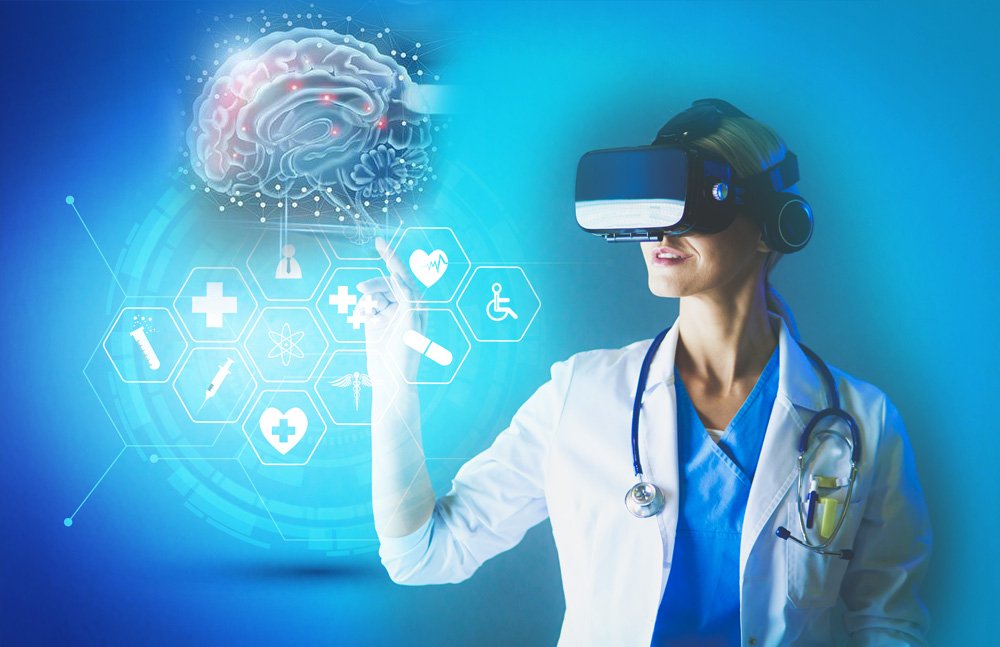Introduction :
Technology has become an integral part of the healthcare industry, transforming the way healthcare is delivered, accessed, and managed. From electronic health records (EHRs) to telemedicine, artificial intelligence (AI), and wearable devices, innovative technologies have revolutionized patient care. In this blog, we will delve into the role of technology in healthcare, exploring the latest innovations, the challenges faced during implementation, and the wide-ranging benefits that technology brings to healthcare professionals and patients alike.
Innovations in Healthcare Technology :
A. Electronic Health Records (EHRs): Electronic Health Records have replaced traditional paper-based records, providing a secure and accessible platform for storing patient information. EHRs enable healthcare providers to access patient data, including medical history, medications, and test results, in real-time. This improves coordination among healthcare teams, reduces errors, and enhances the quality and continuity of care.
B. Telemedicine and Remote Patient Monitoring: Telemedicine allows patients to receive medical consultations remotely, overcoming geographical barriers and improving access to healthcare services. Patients can connect with healthcare professionals through video calls, facilitating virtual diagnoses, follow-ups, and consultations. Remote patient monitoring enables the continuous tracking of vital signs, symptoms, and health data from a distance, promoting proactive healthcare management and early intervention.

C. Artificial Intelligence (AI) and Machine Learning: AI and machine learning algorithms have shown remarkable potential in healthcare applications. These technologies can analyze vast amounts of patient data and identify patterns, aiding in disease diagnosis and treatment planning. AI-powered medical imaging analysis helps radiologists detect abnormalities with increased accuracy, leading to earlier and more precise diagnoses. Machine learning algorithms can also predict patient outcomes, assisting healthcare providers in making informed decisions.
D. Wearable Devices and Mobile Health Apps: Wearable devices, such as fitness trackers and smartwatches, have gained popularity for their ability to monitor vital signs, physical activity, sleep patterns, and more. These devices provide individuals with real-time health data, encouraging proactive health management and preventive care. Mobile health apps offer a range of features, including medication reminders, symptom tracking, and access to health information, empowering individuals to take control of their well-being.
Challenges in Implementing Healthcare Technology :
A. Data Security and Privacy Concerns: The digitalization of healthcare records and the increased exchange of sensitive patient information raise concerns about data security and privacy. Healthcare organizations must implement robust cybersecurity measures to protect patient data from breaches and ensure compliance with regulations. Such as the Health Insurance Portability and Accountability Act (HIPAA).
B. Interoperability and Data Exchange: The interoperability of healthcare systems and the seamless exchange of patient data across different platforms remain major challenges. Variations in data formats, incompatible systems, and a lack of standardized protocols hinder effective communication and collaboration among healthcare providers. Efforts to establish interoperability standards and promote data exchange are crucial for the efficient use of technology in healthcare.
C. Cost and Affordability: Implementing and maintaining healthcare technology solutions can be expensive, especially for smaller healthcare organizations and resource-constrained facilities. The costs associated with infrastructure, hardware, software, training, and ongoing maintenance may limit the adoption of technology. Ensuring affordability and demonstrating the return on investment are essential for widespread implementation.
D. User Adoption and Training: Healthcare professionals’ readiness to adopt and effectively use new technologies is a critical factor in their successful integration. Resistance to change, lack of technological proficiency, and workflow disruptions can hinder user adoption. Adequate training programs, user-friendly interfaces, and ongoing support are necessary to facilitate healthcare professionals’ acceptance and effective utilization of technology.
One response to “The Role of Technology in Healthcare”
-
[…] Also read :- The Role of Technology in Healthcare […]

Leave a Reply